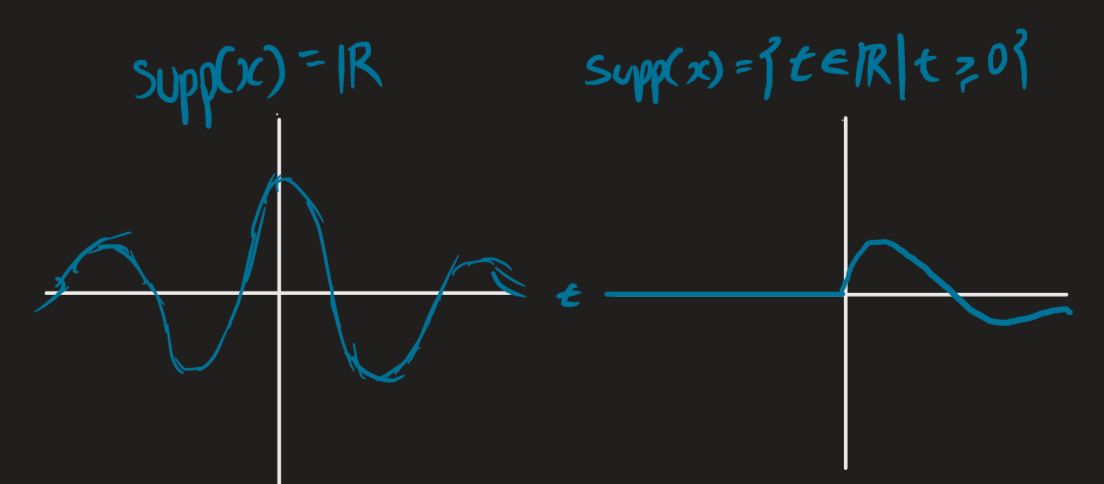In signal theory, we define the duration of a signal as finite if it equals zero outside some bounded time interval. Otherwise, it is of infinite duration. The notion of finite-duration signals allows us to construct the notion of periodic signals as the infinite sum of time-shifted finite-duration signals.
The support of a signal essentially tells us where the signal is non-zero:
- CT case: the smallest set containing .
- DT case: the set .
 i.e., it is a finite duration signal if is contained in a bounded interval.
i.e., it is a finite duration signal if is contained in a bounded interval.
Signals often “begin” at some time. We say that a signal (CT/DT) is:
- Right-sided from time or if .
- Right-sided if it’s right-sided from time for some .